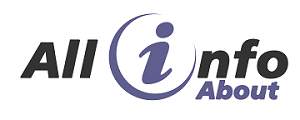- Exposure of Personal Information: If personal details like phone numbers, social security numbers, and financial records are intercepted, they can be exploited by hackers.
- Theft of Business Secrets: Proprietary information can be stolen, causing financial losses that can reach millions of dollars.
- Revealing Customer Records: Accidental disclosure of customer information can result in unhappy customers and potential lawsuits.
- Regulatory Fines: Medical and financial institutions face significant penalties if they do not comply with security regulations such as the Health Insurance Portability and Accountability Act (HIPAA) in the U.S. and the General Data Protection Regulation (GDPR) in Europe.
Email Security Issues
Many people assume that emails are secure because of encryption and the use of login and password procedures. Computers often have firewalls and anti-malware programs to protect against cyberattacks, and emails can be sent directly to specific individuals, unlike faxes that may go to a central machine. However, emails come with serious security risks:
- Malicious Attachments: Emails can contain spyware or viruses that bypass firewalls and infect the recipient’s computer.
- Phishing Scams: Scammers can trick email recipients into providing passwords and other sensitive information.
- Legal Document Transmission: Sending legally binding documents via email can be cumbersome, and some regulatory bodies do not accept emails for legal document transmission.
- Account Hacking: Email accounts can be hacked, leading to corruption or theft of sensitive information.
- Spam Filters: Important messages can be rerouted to spam folders, causing recipients to miss critical deadlines.
- Interception Risks: Emails pass through multiple checkpoints such as firewalls, ISPs, and servers, increasing the chances of interception and hacking. Even if the original email is encrypted, subsequent copies may not be.
Fax Security Issues
Fax transmissions use the Public Switched Telephone Network (PSTN), ensuring point-to-point transmission and making it more secure than email. The process involves converting a sent fax into base64 binary at its source, transmitting it via PSTN, and reassembling it at the recipient’s fax machine. Hacking a fax transmission would require direct access to the telephone line, and intercepted files would appear as unreadable noise. However, traditional faxing has its own security concerns:
- Incorrect Number Entry: Entering the wrong fax number can send confidential information to unintended recipients.
- Universal Protocol: All fax machines use the same protocol, so a fax sent from one machine can be received by any other, increasing the risk of interception.
- Physical Document Vulnerability: Paper documents left on a fax machine can be accessed by unauthorized individuals.
- Storage and Degradation: Faxed paper documents can be difficult to catalog, and ink and paper degrade over time.
Benefits of Network Faxing
Network faxing uses faxing software and servers to ensure secure transmission of sensitive information without the need for dedicated phone lines or fax machines. This method integrates with existing systems, allowing faxes to be sent from various applications. Network faxing eliminates many issues associated with traditional faxing:
- Electronic Reception: Faxes are received electronically, reducing the risk of leaving sensitive documents unattended.
- Error Reduction: Manual phone dialing is eliminated, reducing the chance of sending faxes to the wrong number.
- Automated Cover Sheets: Legal confidentiality statements can be automatically included in faxes.
- Efficient Storage: Faxes are automatically cataloged, indexed, and archived, eliminating paper-based storage issues.
- Audit Trail: Network faxing allows for easy tracking and retrieval of past faxes, creating an accurate audit trail.
- Compliance Monitoring: Some software can monitor communications and block information transmission if it violates regulations or company policies.
Fax vs. Email Security
While both faxes and emails have their own security benefits and risks, network faxing offers several advantages over email:
- Legal Document Security: Network faxes are generally accepted as legally binding documents in court, unlike emails which are more susceptible to fraud and hacking.
- Higher Encryption Level: Fax transmissions via PSTN are more secure than email transmissions, which can be vulnerable even if encrypted.
- Regulatory Compliance: Network faxing makes it easier for businesses to comply with regulations such as GDPR, HIPAA, and others by ensuring only authorized recipients receive the faxes and providing evidence of compliance.
Ensure Security with GFI Software Network Fax Solutions
GFI FaxMaker is a network fax server software that enables secure email-to-fax and fax-to-email transmission. It offers various installation options, including physical on-premise service, virtual Fax over IP (FoIP), or cloud-based faxing. FaxMaker is popular for its security and ease of use:
- User-Friendly Interface: Users can send faxes through a web client or directly from email applications.
- Optical Character Recognition (OCR): Incoming faxes are searchable, making it easier to retrieve older faxes.
- Advanced Features: FaxMaker includes APIs, SMS alerts, and digital signatures.
- Archiving: GFI Archiver provides safe and efficient storage for faxes, ensuring compliance with record confidentiality mandates.
By adopting network faxing solutions like GFI FaxMaker, organizations can ensure the secure transmission of sensitive information while simplifying their document handling processes.





